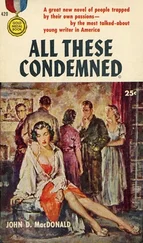Джон Макдональд - Flight of the Tiger
Здесь есть возможность читать онлайн «Джон Макдональд - Flight of the Tiger» весь текст электронной книги совершенно бесплатно (целиком полную версию без сокращений). В некоторых случаях можно слушать аудио, скачать через торрент в формате fb2 и присутствует краткое содержание. Город: Sprinfield, Ohio, Год выпуска: 1954, Издательство: The Crowell-Collier Publishing, Жанр: Детектив, на английском языке. Описание произведения, (предисловие) а так же отзывы посетителей доступны на портале библиотеки ЛибКат.
- Название:Flight of the Tiger
- Автор:
- Издательство:The Crowell-Collier Publishing
- Жанр:
- Год:1954
- Город:Sprinfield, Ohio
- ISBN:нет данных
- Рейтинг книги:4 / 5. Голосов: 1
-
Избранное:Добавить в избранное
- Отзывы:
-
Ваша оценка:
- 80
- 1
- 2
- 3
- 4
- 5
Flight of the Tiger: краткое содержание, описание и аннотация
Предлагаем к чтению аннотацию, описание, краткое содержание или предисловие (зависит от того, что написал сам автор книги «Flight of the Tiger»). Если вы не нашли необходимую информацию о книге — напишите в комментариях, мы постараемся отыскать её.
Flight of the Tiger — читать онлайн бесплатно полную книгу (весь текст) целиком
Ниже представлен текст книги, разбитый по страницам. Система сохранения места последней прочитанной страницы, позволяет с удобством читать онлайн бесплатно книгу «Flight of the Tiger», без необходимости каждый раз заново искать на чём Вы остановились. Поставьте закладку, и сможете в любой момент перейти на страницу, на которой закончили чтение.
Интервал:
Закладка:
And then MacLane had said, with a sudden change of mood, “Benny, if you should happen by any chance to grow up during this war, and I don’t happen to come out of it, go see her. Just for the hell of it. But if you’re still a fly-boy tiger, all reflexes and no complexes, stay away from her.”
“You’re too ugly and evil to die, MacLane,” Ben had said.
It had all been just a lot of talk. Like seeing one of those foreign films without the English subtitles. Once in a while you could get a hint of what was going on, but you couldn’t follow the story; and yet you suspected that it was a good movie...
At Ben’s signal the club-car waiter brought another drink, stood swaying with the train motion as he showed Ben the little bottle, then peeled the plastic from the cap and poured the mahogany liquor over the ice, and added the drink to the check.
It had all been just a lot of talk that he kept remembering, and then there had come that day last July, the one that started so high you could see midday stars in the deep purple sky. He had been up in it; he had been trying to get a position check and was just saying into the throat mike, “Red Candy four...” when something hammered the ship like a blow from a great sledge hammer. He saw the flicker of light as the MIG went by. In a fraction of a second his plane had been turned into a mass of tumbling junk. He managed to find the release, and then the chute jolted him and he released the chair. He looked down. The canopy was wobbling below like a falling leaf. He saw the ship, and it seemed to hang there against the ground long after he thought it should have hit, and then there had been a blue-white flare against the rocks. He counted instinctively one thousand one, one thousand two, one thousand three — and as he said five he heard the whooshing thump of the gas explosion. He knew then he was at six thousand feet. It was very still. He could not place himself. The terrain did not look familiar. He heard a far-off jangling of an automatic weapon, and then a faint sound of artillery.
The ground did not seem to change for a long time, and then it began to come closer. He thought of what they did to anybody who came out of the sky, because men from the sky were the vendors of napalm, that sticky, clinging, burning horror. And the whole sky was empty, so there was no one to circle and ride herd until the egg beater could come get him. And he heard himself whimper and was deeply shocked at the forlorn and lonely sound.
He swung lower and he saw the Reds climbing out of the ground and tumbling down the ridge. He heard their shrill harsh cries, and saw their brown grinning faces as they ran on bandy legs: these were the brown little men who committed those unimaginable horrors. He was aware of his body during those few moments that he thought were left to him. He was aware of the pumping of his heart, and all the blood in the clever veins, and all the pictures in his mind, and all the plans that now would never be completed. He wanted to take out the .45 and taste the gun oil against his teeth and pull the trigger. But something inside him had snapped. It was something that had been growing more and more taut ever since the day Mac-Lane had died, and now it had snapped in two, and there was nothing he could do. He could not unholster the automatic. He could not even yank the shroud lines to try to slide away from the Reds. He pulled his legs up a bit and buried his head in his arms, like a boxer covering up, and came down making a sound like a child crying. He hit hard and the chute dragged him on the rocks and he did nothing.
They were ROKs, of course. But he found that out too late. He found that out after whatever it was inside him had snapped.
He had pretty near wrecked himself when he landed, and for months after the shooting war ended, he had lain in one hospital after another. And all the time he had known he could never be able to force himself back into another ship.
When he had been well for a fairly long time, and couldn’t put it off any longer, he went to Masterson to turn himself in. But Masterson seemed to sense what was bothering him, and he brought up this suggestion of taking the thirty days he had coming and then reporting to a training station. Masterson had mentioned the topside request for a man with as many missions as Morrow had completed.
And then Ben had found himself saying, “Yes, sir,” and packing, and picking up the two sets of orders, and having farewell drinks at the club in Tokyo. On the way back, every time the transport had landed or taken off, he’d found himself feeling bloodless and empty, cold with fear. In San Francisco he had bought civilian clothes and a suitcase and expressed his flight bag through to the training station. And when he walked out of the express office, he had sensed that he would never see the flight bag again, never wear the uniform again.
It was, he thought now, as though all his life he hadn’t known what he was. He’d thought he was Ben Morrow, a guy with an average face and a smile that people seemed to like. He was Ben Morrow, five ten, one sixty, sandy-haired, with a quick strong body and as much guts as the next one. He was not a complicated guy. He was able to fight with his hands, sweet-talk a girl, carry his drinks, do his share. He’d never been a ringleader in any group, but he was always popular enough. And it had been a fine, warm feeling to know he’d been damned good at the most fearful and demanding profession yet devised by man. It had been a special mark on him: it had set him apart. It had given him the right to act a little cocky, because there weren’t very many tigers.
But that Ben Morrow was a phony — like a stuffed dummy on wheels with the real Ben Morrow walking behind it, pushing it along.
He looked at the empty lounge chair beside him and wished MacLane were sitting in it.
He couldn’t think of anybody else he could tell this to. Before, it had always been somebody else who chickened out. What did you do when it was you? When it was your own self?
There was no one to talk to. His mother had died when he was twelve. His father had turned grim, remote, unreachable. Two years later he had married again, married Leah. There were three kids now, and his father had built a new life around himself in which there was no room for Ben. Sure, he was always welcome at the house in Philadelphia, but he could never feel a part of it.
And he remembered the girl he had thought he loved just before they had shipped him over, and now, in retrospect, she seemed inexpressibly silly.
There was no one to talk to, and there were no hiding places, like his room before his mother had died. Dad had a new life, and it was a good life, a good marriage. Far away there was a hiding place, but that was gone. He remembered his room clearly: the Navajo blanket, and the plane models hung from the ceiling by black threads; the books and the cracked red-plastic radio. Everything had been so warm, so sane, so secure. From that vantage point you could look ahead at your life, like looking down a road, and know just what it would be. All the books had illustrations, and all the heroes had steady eyes. There were dragons to slay, and they came in all sizes.
And then you found that you were one of the secondary characters in all the plots, the sniveler, the broken one. All the heroes you admired turned their broad backs and stood silent. They rejected you, and all you could do was run into your room and slam the door and lie on the bed.
But the room was gone. You still walked with the customary jauntiness, and your eye was steady, and your shoulders were squared, but you were an impostor — and the inevitable unmasking was only twenty-eight days away.
He remembered the month he had flown out of MacDill, and the kid named Russell something — the kid who talked a little too much and a little too loudly, and whose cap was just a bit more battered than any other cap on the post. Then Russell had trouble on a landing and got in by a whisker — lucked in with a hell of a bounce and a ground loop and a lot of expensive damage. After that, he wouldn’t or couldn’t button himself back into one of the training jets.
Читать дальшеИнтервал:
Закладка:
Похожие книги на «Flight of the Tiger»
Представляем Вашему вниманию похожие книги на «Flight of the Tiger» списком для выбора. Мы отобрали схожую по названию и смыслу литературу в надежде предоставить читателям больше вариантов отыскать новые, интересные, ещё непрочитанные произведения.
Обсуждение, отзывы о книге «Flight of the Tiger» и просто собственные мнения читателей. Оставьте ваши комментарии, напишите, что Вы думаете о произведении, его смысле или главных героях. Укажите что конкретно понравилось, а что нет, и почему Вы так считаете.
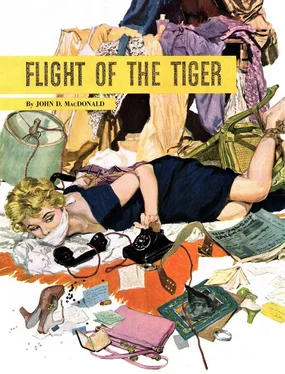

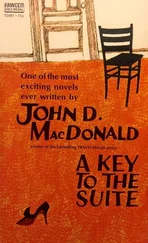
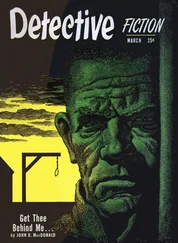

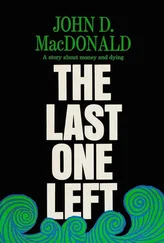
![Джон Макдональд - Wine of the Dreamers [= Planet of the Dreamers]](/books/430039/dzhon-makdonald-wine-of-the-dreamers-planet-of-thumb.webp)



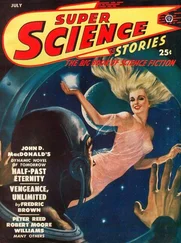
![Джон Макдональд - The Hunted [Short Story]](/books/433679/dzhon-makdonald-the-hunted-short-story-thumb.webp)
